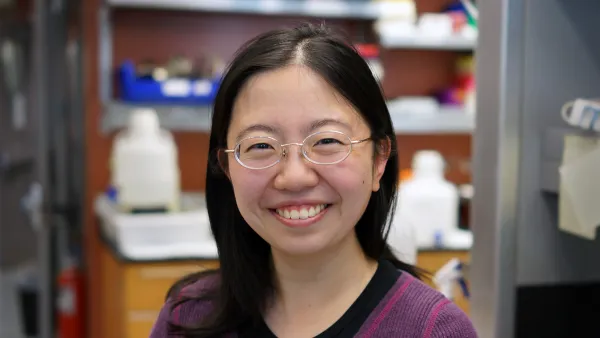Selected Publications:
Tsekitsidou E., Wang J.T., Wong C.J., Ulengin-Talkish I., Stearns T., Gingras A.-C., Cyert M.S. (2022) Calcineurin associates with centrosomes and regulates cilia length maintenance. bioRxiv 2022.06.16.496489. https://doi.org/10.1101/2022.06.16.496489
Ching K.*, Wang J.T.*, Stearns T. (2021) Long-range migration of centrioles to the apical surface of the olfactory epithelium. eLife 11:e74399. https://doi.org/10.7554/eLife.74399 *Equal contribution
Wigington C.P., Roy J., Damle N.P., Yadav V.K., Blikstad C., Resch E., Wong C.J., Mackay D.R., Wang J.T., Krystkowiak I., Bradburn, D.A., Tsekitsidou, E., Hong, S.H., Kaderali, M.A., Xu, S., Stearns T., Gingras A.-C., Ullman K.S., Ivarsson Y., Davey N.E., Cyert M.S. (2020) Systematic discovery of short linear motifs decodes calcineurin phosphatase signaling. Molecular Cell 79(2):342-358.e12. http://doi.org/10.1016/j.molcel.2020.06.029
Wang J.T., Stearns T. (2017) The ABCs of centriole architecture: the form and function of triplet microtubules. Cold Spring Harbor Symposia Quantitative Biology 82:142-155. http://doi.org/10.1101/sqb.2017.82.034496
Wang J.T., Kong D., Hoerner C.R., Loncarek J., Stearns T. (2017) Centriole triplet microtubules are required for stable centriole formation and inheritance in human cells. eLife 2017;6:e29061. http://doi.org/10.7554/eLife.29061
Wang J.T., Smith J., Chen B.C., Schmidt H., Rasoloson D., Paix A., Lambrus B.G., Calidas D., Betzig E., Seydoux G. (2014) Regulation of RNA granule dynamics by phosphorylation of serine-rich, intrinsically disordered proteins in C. elegans. eLife 2014;3:e04591. http://doi.org/10.7554/eLife.04591
Chen, B.C., Legant, W.R., Wang, K., Shao, L., Milkie, D. E., Davidson, M. W., Janetopoulos, C., Wu, X.S., Hammer III, J.A., Liu, Z., English, B.P., Mimori-Kiyosue, Y., Romero, D.P., Ritter, A., Lippincott-Schwartz, J., Fritz-Laylin, L., Mullins, R.D., Mitchell, D., Bembenek, J., Reymann, A., Bohme, R., Grill, S.W., Wang, J.T., Seydoux, G., Tulu, U.S., Kiehart, D.P., Betzig, E. (2014). Lattice Light Sheet Microscopy: Imaging Molecules, Cells, and Embryos at High Spatiotemporal Resolution. Science 346(6208). http://doi.org/10.1126/science.1257998
Gallo C.M.*, Wang J.T.*, Motegi F., Seydoux G. (2010) Cytoplasmic partitioning of P granule components is not required to specify the germline in C. elegans. Science 330(6011):1685-1689. http://doi.org/10.1126/science.1193697 *Equal contribution.



